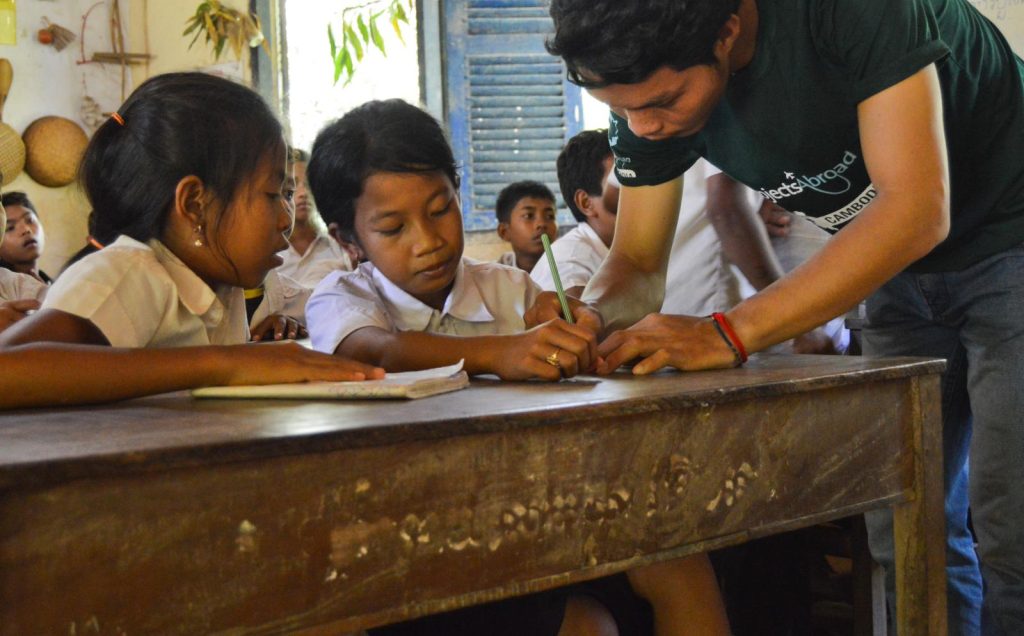Volunteer programs abroad are structured opportunities that allow individuals to contribute to communities in different countries while gaining personal and professional experience. Participants engage in a variety of activities, including education, healthcare, environmental conservation, community development, and social services. Volunteer Programs Abroad provide hands-on experiences that help volunteers develop practical skills in real-world settings.
Who Can Participate in Volunteer Programs Abroad?
Volunteer programs abroad are open to people of different ages and backgrounds, though specific programs may have age restrictions, skill requirements, or language proficiency expectations. Students, recent graduates, professionals, and retirees can all find programs suited to their interests and capabilities. Enthusiasm, adaptability, and a willingness to learn are often more important than prior experience.
Why Should I Consider Volunteering Abroad?
Volunteering abroad offers multiple benefits. It allows participants to gain professional and personal skills, experience new cultures, expand global awareness, and contribute positively to communities in need. Volunteers also build networks, improve communication and problem-solving skills, and develop a sense of empathy and social responsibility that can enhance future career opportunities.
What Types of Skills Can I Learn in Volunteer Programs Abroad?
Volunteer programs abroad provide a broad range of skill-building opportunities, including:
- Communication Skills: Interacting with locals and international volunteers improves language and interpersonal skills.
- Leadership and Teamwork: Coordinating tasks and projects teaches collaboration, planning, and leadership.
- Problem-Solving: Working in dynamic environments helps volunteers adapt to challenges creatively.
- Technical Skills: Depending on the program, volunteers may learn skills such as teaching methods, medical procedures, agricultural techniques, or construction skills.
- Cultural Competence: Living and working in a new country fosters understanding of cultural diversity and global perspectives.
What Types of Volunteer Programs Are Available Abroad?
Volunteer programs abroad vary in focus and duration. Common types include:
- Education Programs: Teaching languages, math, science, or arts to children and adults.
- Healthcare Programs: Assisting medical professionals, providing health education, or supporting public health initiatives.
- Environmental Conservation: Participating in wildlife protection, reforestation, or sustainable agriculture projects.
- Community Development: Helping build infrastructure, support local businesses, or provide social services.
- Humanitarian Aid: Assisting in disaster relief, refugee support, or other emergency services.
How Long Do Volunteer Programs Abroad Typically Last?
The duration of volunteer programs abroad can vary widely. Short-term programs may last one to four weeks, offering an introductory experience. Medium-term programs typically run from one to three months, providing more immersive exposure. Long-term programs can last six months to a year or more, allowing volunteers to take on more significant responsibilities and see projects through to completion.
How Do I Choose the Right Volunteer Program Abroad?
Selecting the right program requires considering several factors:
- Interests and Skills: Align the program with your strengths and areas where you want to grow.
- Location: Consider language, climate, safety, and cultural preferences.
- Program Structure: Check for supervision, training, and support provided.
- Duration and Commitment: Ensure the program fits your schedule and personal commitments.
- Costs and Funding: Evaluate program fees, travel expenses, and available scholarships or grants.
Researching program reviews and speaking with alumni can also provide valuable insights into the experience.
Are Volunteer Programs Abroad Expensive?
Costs for volunteer programs abroad vary depending on the destination, program type, and duration. Expenses may include program fees, accommodation, meals, travel insurance, and flights. While some programs are funded or offer stipends, others may require participants to cover most costs. Many organizations offer scholarships, fundraising support, or affordable options to make volunteering abroad accessible.
Do I Need Previous Experience to Join Volunteer Programs Abroad?
Many programs welcome volunteers with little to no prior experience, focusing instead on motivation, adaptability, and willingness to learn. Certain specialized programs, such as medical volunteering or construction, may require specific skills, certifications, or educational backgrounds. Training is often provided to ensure participants are prepared for their roles.
How Do Volunteer Programs Abroad Enhance Career Opportunities?
Participating in volunteer programs abroad can boost your resume and professional profile by demonstrating global experience, adaptability, problem-solving, and cross-cultural communication skills. Employers value individuals who show initiative, empathy, and the ability to work in diverse environments. Volunteers may also develop technical or field-specific skills relevant to their careers.
Can Volunteering Abroad Help Me Learn a New Language?
Yes, immersion in a foreign country provides an ideal environment to practice and learn a new language. Daily interactions with locals, participation in projects, and cultural activities help volunteers improve language proficiency while gaining practical communication experience. Some programs also offer formal language classes alongside volunteering.
How Safe Are Volunteer Programs Abroad?
Safety is a priority for reputable volunteer programs abroad. Organizations often provide pre-departure orientation, local support, and emergency protocols. Choosing a well-established program with positive reviews, proper insurance coverage, and trained staff can help ensure a safe experience. Volunteers should also follow personal safety guidelines, respect local customs, and remain aware of their surroundings.
What Cultural Experiences Can I Expect While Volunteering Abroad?
Volunteering abroad offers unique cultural experiences, including:
- Living with or near local communities
- Participating in traditional events and festivals
- Experiencing local cuisine and daily life
- Learning cultural norms and values firsthand
- Building lasting relationships with people from diverse backgrounds
These experiences enrich your understanding of the world and enhance personal growth.
How Do I Prepare for a Volunteer Program Abroad?
Preparation is essential for a successful volunteer experience. Key steps include:
- Researching the country’s culture, customs, and language
- Completing necessary vaccinations and health checks
- Arranging travel documents, visas, and insurance
- Packing appropriate clothing, supplies, and personal items
- Setting realistic expectations for the experience
- Preparing mentally and emotionally for challenges and new environments
What Challenges Might I Face While Volunteering Abroad?
Volunteering abroad can be highly rewarding but may also present challenges, such as:
- Adapting to a new culture, language, or lifestyle
- Coping with limited resources or basic living conditions
- Managing homesickness or loneliness
- Navigating unexpected project challenges or delays
- Adjusting to different work styles and communication methods
Overcoming these challenges fosters resilience, problem-solving abilities, and personal growth.
Can Volunteer Programs Abroad Be Short-Term or Long-Term?
Yes, volunteer programs abroad are designed to accommodate different time commitments. Short-term programs provide a taste of international volunteering, while long-term programs allow volunteers to take on more responsibilities and witness meaningful progress in their projects. Some volunteers return for multiple programs to deepen their experience and skillset.
Do Volunteer Programs Abroad Provide Accommodation and Meals?
Many programs include accommodation and meals as part of the package, often with homestays, dormitories, or shared volunteer housing. Living arrangements vary depending on the program, location, and budget. Homestays provide a more immersive cultural experience, while shared housing with other volunteers fosters community and networking.
How Can I Fund My Volunteer Program Abroad?
Funding options may include personal savings, fundraising campaigns, scholarships, grants, or program-specific financial aid. Some volunteers work part-time or freelance before departure to cover costs. Researching options early ensures you can secure funding and plan your experience without unnecessary stress.
What Is the Impact of Volunteering Abroad on Local Communities?
Volunteer programs abroad aim to make a positive, sustainable impact on local communities. Volunteers contribute skills, resources, and time to support education, health, environmental, or development initiatives. Programs that emphasize collaboration with local organizations and community members ensure that efforts address genuine needs and foster long-term benefits.
Can Volunteering Abroad Improve Personal Growth?
Absolutely. Volunteering abroad challenges individuals to step out of their comfort zones, adapt to new environments, and navigate unfamiliar situations. These experiences enhance self-confidence, independence, problem-solving skills, and cross-cultural understanding. Many volunteers report increased empathy, global awareness, and a stronger sense of purpose after participating.
Are Volunteer Programs Abroad Accredited or Recognized?
Some programs offer certificates of completion, recognition from partner organizations, or academic credit for student volunteers. Accreditation may vary depending on the program and institution. Choosing a program affiliated with reputable organizations or universities can enhance professional recognition and future career opportunities.
Can Volunteer Programs Abroad Lead to Career Opportunities?
Yes, international volunteering can open doors to career opportunities. The skills and experiences gained—such as project management, communication, teamwork, and cultural competence—are valuable in fields like education, healthcare, international development, environmental management, and nonprofit work. Networking with professionals and organizations abroad can also lead to internships or job placements.
How Do I Make the Most of My Volunteer Experience Abroad?
To maximize your experience, consider these tips:
- Be open-minded and flexible in adapting to new environments
- Engage fully with local communities and fellow volunteers
- Reflect on your experiences through journaling or discussions
- Seek opportunities to learn and develop new skills
- Respect cultural norms and local traditions
- Take initiative while being mindful of community needs and program goals
What Should I Do After Completing a Volunteer Program Abroad?
After completing a program, consider:
- Updating your resume or LinkedIn profile with relevant skills and experiences
- Staying in touch with fellow volunteers and local contacts
- Sharing your experiences through blogs, social media, or presentations
- Reflecting on lessons learned and how they apply to personal or professional goals
- Exploring opportunities for continued volunteering or internships
Conclusion
Volunteer programs abroad provide a unique opportunity to learn new skills, gain real-world experience, and make a meaningful contribution to communities worldwide. They combine cultural immersion with practical training, helping participants grow personally and professionally. By understanding program types, expectations, safety considerations, and potential benefits, you can choose the right program and maximize your impact. Volunteering abroad not only enriches your knowledge and skillset but also fosters empathy, global awareness, and a lifelong commitment to making a positive difference in the world.

